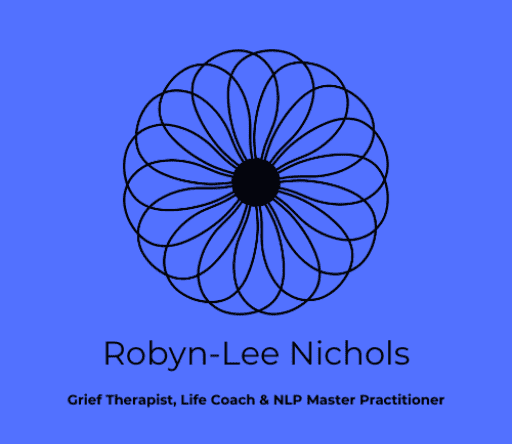The Invisible Weight of Grief: How Complicated Grief Disrupts Daily Life
The weight of grief is a powerful emotional landscape that transforms our inner world, casting long shadows across even the most mundane aspects of daily existence. When grief becomes complicated—a deep, persistent state of mourning that defies traditional healing trajectories—its impact extends far beyond the initial experience of loss, infiltrating every corner of our lived experience with an overwhelming sense of emotional fragmentation.
The Emotional Minefield of Routine Activities
Consider something as routine as driving—a task most of us perform without much conscious thought. For someone experiencing complicated grief, this seemingly simple activity becomes a potential emotional minefield.
The car transforms from a mode of transportation into a microcosm of internal turmoil. A sudden memory, a song on the radio, or a fleeting reminder of what’s been lost can trigger an emotional cascade that disrupts cognitive function and emotional regulation.
Road rage becomes more than just an aggressive driving response; it becomes a manifestation of unprocessed pain. The inability to regulate emotions means that minor traffic incidents can trigger disproportionate anger, frustration, and a sense of helplessness.
The grief-stricken individual isn’t just reacting to the current situation but is responding to a deeper, unresolved emotional wound. The weight of grief takes it toll and each honk of a horn, each unexpected lane change becomes a potential trigger for an emotional eruption that feels simultaneously intense and uncontrollable.
For further insight on the nature of road rage in the United States, this article by Sieben Polk, with practice areas of personal injury is a useful read:
Relationships: The Delicate Dance of Connection and Isolation and the impact of the weight of grief
Complicated grief dramatically alters our relational dynamics, creating a complex interplay between desperate need for connection and an equally powerful impulse to withdraw. Relationships become simultaneously a source of potential healing and profound vulnerability.
Friends and family, often well-intentioned, may offer support that feels misaligned or insufficient, leading to a sense of further isolation. Perhaps in the words said, when they are trying to make things easier for you, there are constant triggers that make you feel inadequate in your unique way of grieving.
While we are carrying the weight of grief, we might find themselves oscillating between two extremes: an intense desire to be understood and a protective instinct that pushes others away.
Conversations become minefields where casual interactions can suddenly turn emotionally charged.
A seemingly innocuous comment can trigger a wave of grief, making social interactions feel like navigating a landscape where emotional landmines are hidden beneath a seemingly calm surface.
For some support to channel your anger, and other overwhelming emotions take a look at some of the resources, I have developed:
The Authenticity Paradox
Perhaps most profoundly, the weight of grief challenges our fundamental relationship with authenticity, and our very intimate and personal way of channeling our emotions. The self becomes fractured—split between who we were before the loss and who we are becoming in its aftermath. This disconnect creates a persistent sense of emotional dissonance, where our external presentation feels increasingly disconnected from our internal experience.
Perhaps we have realisations that the person we were prior to the loss isn’t in alignment with our own core values, and now there is an existential crisis to manage and not just the grief we are feeling.
We might begin to question our own existence and our imminent passing, which not only creates further discomfort, but also can have an impact on our life’s worthiness.
If you notice this, please reach out for a safe space in which you can process this.
We begin to question the very authenticity of our emotional responses.
Are we overreacting?
Are we not reacting enough?
The weight of grief becomes a lens through which we view our entire existence, distorting our perception of self and reality. Our internal narrative becomes a constant negotiation between honouring the depth of our loss and attempting to reconstruct a functional daily existence.
Breaking the Cycle and Unloading the Weight of Grief
Recognizing complicated grief as more than just an emotional state, but as a profound reconfiguration of one’s inner landscape, is the first step towards healing.
Professional support, can provide critical tools for emotional regulation and integration.
Practices like mindfulness, somatic experiencing, and targeted therapeutic interventions can help individuals develop more adaptive strategies for processing grief. These approaches acknowledge grief not as something to be “overcome” but as a transformative experience that can be integrated into one’s life narrative.
In my own grief journey allowing myself to witness my own grief and then having others witness it with me, has been incredible transformative.
Conclusion
Let us acknowledge that complicated grief, or grief that has not been processed in a health way, is not a linear journey but a complex, multidimensional experience that reshapes our understanding of loss, love, and personal resilience.
It demands compassion—from others and, most importantly, from ourselves. By recognizing its profound impact on our daily activities and relationships, we can begin to create space for healing, authenticity, and gradual restoration.
The path is not about returning to who we were before the loss, but about courageously discovering who we are becoming in its wake. The weight of grief can be lightened and turned into our most powerful internal asset.







